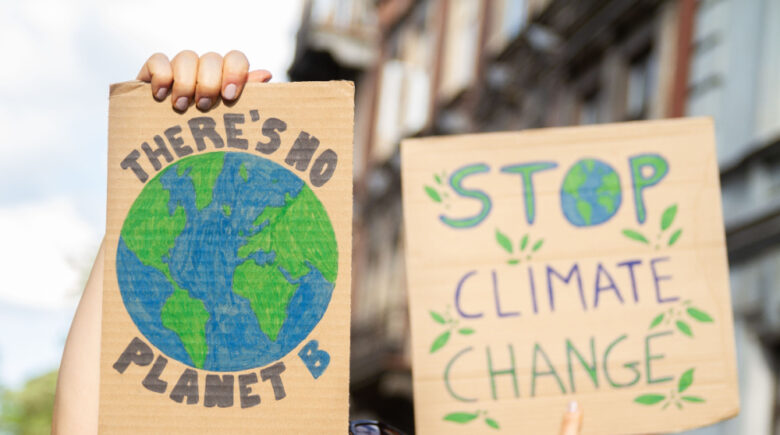Concerns about the planet’s changing climate have become a hot political topic. Politicians often leverage climate facts to gain support, yet opinions vary widely on the reality of climate change, human responsibility, and potential solutions.
Key Facts About the Changing Climate
Here are some significant and informative facts about the Earth’s changing climate and its impact on weather, ecosystems, air, water, and more.
1. Temperature Changes Are Not New
Extreme temperature shifts on Earth are cyclic events documented by scientists over 125,000 years. The planet’s temperatures have fluctuated between frigid ice ages and hot weather patterns, contributing to the extinction or evolution of ancient species found in fossils.
2. Recent Decades Have Been Exceptionally Hot
Many scientists believe the last decade was the hottest in approximately 125,000 years. Global warming has been on an upward trend for around 2,000 years. While some researchers have different findings, most agree that recent temperatures are unprecedented in modern lifetimes.
3. Potential Uninhabitability by Century’s End
By the end of this century, many places might become too hot for humans to live. As of July 2024, parts of the United States are experiencing record-breaking summer heat, leading to extreme environmental changes and severe weather events.
4. Ocean Heat Absorption and Marine Life Impact
Oceans can absorb 90% of Earth’s produced heat, helping maintain stable ocean temperatures for centuries. However, today’s hotter temperatures are linked to the decline of sensitive marine life, like coral reefs. Pollution, overfishing, and overpopulation also harm ocean health and overall planetary well-being.
5. Highest CO2 Levels in 2 Million Years
Deforestation, industrial production, and pollution have increased CO2 levels to their highest in approximately 2 million years. Although oceans absorb excess CO2, continued high levels harm marine life, ecosystems, and life forms globally.
6. Annual Ice Loss and Climate Change
Ice loss in the coldest regions is connected to climate change, leading to rising sea levels and soil erosion. This erosion can alter entire islands, countries, and landmasses, dramatically changing the planet’s geography.
7. Greenhouse Gas Emissions
Greenhouse gases from vehicles, industries, and other sources are significant contributors to climate change. These pollutants get trapped in the atmosphere, causing the planet to absorb more heat and energy from the sun, leading to increased temperatures and climate phenomena.
8. Environmental and Economic Damages
Extreme weather events have caused extensive environmental damage, loss of human life, and billions of dollars in cleanup and emergency services. Flooding, storms, and dangerous winds have resulted in significant human, animal, and plant life losses.
Can We Stop or Slow Climate Change?
Scientists are divided on whether humans can stop or slow climate change. Some believe human actions significantly contribute to climate issues, while others think natural cycles will eventually stabilize the planet, though it may become drastically different.
Hope for the Future
Humans are resourceful, intelligent, and adaptable. By reducing pollution, limiting waste, and supporting conservation efforts, we can make a difference and help preserve natural resources for future generations.
Concerns about the planet’s changing climate have become a hot political topic. Politicians often leverage climate facts to gain support, yet opinions vary widely on the reality of climate change, human responsibility, and potential solutions.
Key Facts About the Changing Climate
Here are some significant and informative facts about the Earth’s changing climate and its impact on weather, ecosystems, air, water, and more.
1. Temperature Changes Are Not New
Extreme temperature shifts on Earth are cyclic events documented by scientists over 125,000 years. The planet’s temperatures have fluctuated between frigid ice ages and hot weather patterns, contributing to the extinction or evolution of ancient species found in fossils.
2. Recent Decades Have Been Exceptionally Hot
Many scientists believe the last decade was the hottest in approximately 125,000 years. Global warming has been on an upward trend for around 2,000 years. While some researchers have different findings, most agree that recent temperatures are unprecedented in modern lifetimes.
3. Potential Uninhabitability by Century’s End
By the end of this century, many places might become too hot for humans to live. As of July 2024, parts of the United States are experiencing record-breaking summer heat, leading to extreme environmental changes and severe weather events.
4. Ocean Heat Absorption and Marine Life Impact
Oceans can absorb 90% of Earth’s produced heat, helping maintain stable ocean temperatures for centuries. However, today’s hotter temperatures are linked to the decline of sensitive marine life, like coral reefs. Pollution, overfishing, and overpopulation also harm ocean health and overall planetary well-being.
5. Highest CO2 Levels in 2 Million Years
Deforestation, industrial production, and pollution have increased CO2 levels to their highest in approximately 2 million years. Although oceans absorb excess CO2, continued high levels harm marine life, ecosystems, and life forms globally.
6. Annual Ice Loss and Climate Change
Ice loss in the coldest regions is connected to climate change, leading to rising sea levels and soil erosion. This erosion can alter entire islands, countries, and landmasses, dramatically changing the planet’s geography.
7. Greenhouse Gas Emissions
Greenhouse gases from vehicles, industries, and other sources are significant contributors to climate change. These pollutants get trapped in the atmosphere, causing the planet to absorb more heat and energy from the sun, leading to increased temperatures and climate phenomena.
8. Environmental and Economic Damages
Extreme weather events have caused extensive environmental damage, loss of human life, and billions of dollars in cleanup and emergency services. Flooding, storms, and dangerous winds have resulted in significant human, animal, and plant life losses.
Can We Stop or Slow Climate Change?
Scientists are divided on whether humans can stop or slow climate change. Some believe human actions significantly contribute to climate issues, while others think natural cycles will eventually stabilize the planet, though it may become drastically different.
Hope for the Future
Humans are resourceful, intelligent, and adaptable. By reducing pollution, limiting waste, and supporting conservation efforts, we can make a difference and help preserve natural resources for future generations.



